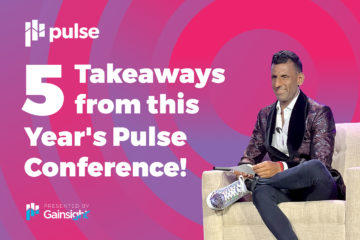
Rock stars are in demand. Take a look at the career pages of most tech companies and you’ll find recruiters looking for the next tech American Idol. A quick search on Indeed.com shows 2,433 “rock star” openings – and I’m guessing Daft Punk isn’t hiring.
Look closer and you’ll find opportunities for Client Engagement Sopranos and Voice/Data Engineer Divas. There’s even one for a, you guessed it, “Rock Star” Business Development Internship (Paid) – because, you know, even rock stars gotta’ get paid.
Although one of our company values is child-like joy — which means we’re obsessed with ridiculous karaoke and silly music video parodies — I’ve grown to groan at our obsession in tech for rock stars – and here’s why:
1. Having Every Employee be a Rock Star is Illogical
I understand the appeal of the term – we all want to feel special and important. But realistically, if every teammate you hire is a “rock star,” what does that even mean? Is everyone special and everyone #1? Is this elementary school soccer or business?
2. Rock Star Doesn’t Mean What You Think It Means
Since most of us aren’t hiring actual “singers” or “performers,” we should read the second definition with trepidation. As a CEO, I’m not sure that I want a culture of people who inspire fanatical admiration.
3. Rock Stars Are Cheesy
Terms like “rock star” and “A Player” (and don’t get me started on “ninjas”) promote lazy thinking. If you think your success depends on finding mythically talented unicorns to run your company, you probably don’t understand your business well enough. If you can’t define the specific, tangible skills required for an individual job, you aren’t ready to hire for it.
4. Rock Stars Don’t Promote Teamwork
In reality, great companies are built by teams working together. If business was just about rock stars, we wouldn’t need corporations at all – we could all just be a bunch of freelancers. The nature of “the firm,” as economics professors refer to it, is that the sum of individuals is greater than its parts. In a high performing team, you need a lot of parts – not just the singers under the spotlight but also the drummers, the promoters and even the roadies.
5. Rock Stars Hide Real Talent
The best companies have contributors at all levels – from executive staff to product development to sales and customer success to finance to the front desk receptionist. Indeed, sometimes when one teammate shines, it’s because of the great work of those around her. Behind every “ninja” engineer is a reliable QA or ops person. Next to each “elephant hunting” salesperson is a dedicated sales engineer.
6. Rock Star Cultures Aren’t Sustainable
Great companies that are “built to last” (to borrow from Jim Collins’ famous book of the same name) survive product ebbs and flows, economic cycles and leadership changes. The best companies make the company (and its customers) the star. You might be able to get a release shipped or a deal closed with rock stars but the music eventually stops.
7. Rock Star Cultures Create Bias
Some people believe innately in their own stardom – no matter how off key they sound. And others shy away from the spotlight. So when we ask for rock stars in job seekers, we inadvertently bias our pool of applicants. This thoughtful article analyzing bias in the text of job descriptions highlights the point, with some great analysis by diversity expert Joelle Emerson of Paradigm.
As the author points out: “Companies may say they are looking for a rock star or ninja to join their team, and white men are more likely to identify with or aspire to such descriptions.”
Conclusion
Don’t get me wrong. As the CEO, I want to hire people with ample passion and talents to do great in their jobs. But those needs change from company to company and from role to role. I firmly believe that a great company is more like a symphony than a rock band. You might notice an amazing vocalist or solo performer – but what you really relish and remember is everyone performing in total, blissful harmony. If you want to rock out, go play Guitar Hero at home.
*Gainsight used the terms “rock star” or “ninja” in our job posts from time to time in the past, but the banality of those words is what inspired me to write this post.
**Thanks to Joelle Emerson for helping with this piece.





